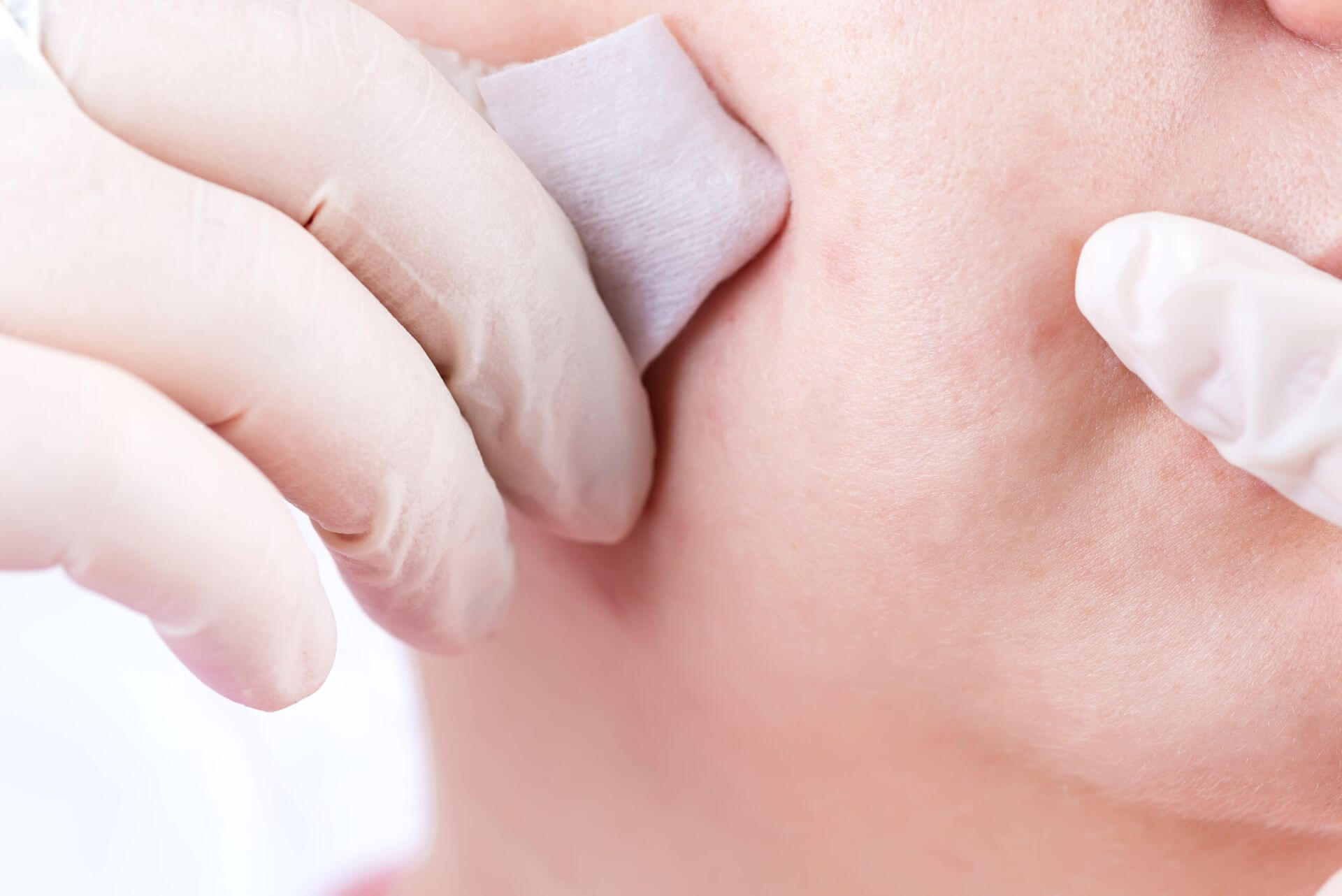Acne is the most common skin condition in the U.S., and in the U.S. alone, it affects nearly 50 million people annually. Most people experience acne at some point in their lives, and it is particularly common in preteens and teenagers. The most common type affects the hair follicles in the face, chest, and back. There are many products available for acne that do not require a prescription, but for tougher cases, the best acne treatment may begin with consulting your dermatologist.
What Is Acne?
Acne occurs when the oil glands connected to hair follicles increase their production of sebum, the natural oil that protects and lubricates the skin. Hormonal changes such as puberty can stimulate these oil glands and change the way that skin cells mature in a way that makes them more likely to clog the pore of the hair follicle. Sometimes this clog can appear as a whitehead. If it is exposed to the air, it can appear as a blackhead. Eventually, this clogged pore grows and produces a bump. Sometimes the wall ruptures, which allows bacteria found on the skin and other substances into these deeper layers of the skin. This causes inflammation, which, near the surface of the skin, produces a pustule. Deeper inflammation results in a pimple, and deeper still, results in a cyst.
Acne Solutions
If you suffer from acne, there are treatments available. It’s best to start treatment when it becomes bothersome to you or when there is potential for acne scars. The first step in combating acne is developing and maintaining a regular and healthy skincare routine.
· Use a mild cleanser twice daily to keep skin clean.
· Exfoliate a few times a week using Glytone Mild Gel Cleanser (4.7% glycolic acid). Products containing glycolic or alpha hydroxy acids are effective exfoliants.
· Use an astringent or toner like Fisher Cosmetic Toner to wipe away excess oil.
· Moisturize. If you suffer from oily skin, it seems counterintuitive to moisturize but it is an important step in protecting your skin. A moisturizer like Tolérance Extrême Cream is great for all skin types and safe to use after any dermatological procedure.
There are several topical acne treatments such as antibacterial cleansers and applications. The main ingredient in these is benzoyl peroxide, which kills surface bacteria on the skin. Benzoyl peroxide can come in a variety of forms such as cleansers, lotions, and creams.
If your acne feels unmanageable with just a skincare routine, you may benefit from topical or oral antibiotics, topical Retin-A or retrinal such as Avene Retrinal, or other oral medications. In cases of large pimples or cysts, injections of cortisone can make them flatten out fast.
In severe cases, one acne solution that has been shown to work well is isotretinoin. This treatment should be used only by sufferers of severe cystic acne whose condition has been unresponsive to the above, more conventional treatments. Isotretinoin has potentially serious side effects, and so is not a good option for those with milder cases of acne.
For makeup wearers, many clogged pores are the result of wearing foundation. Foundation is one of the leading causes of clogged pores and skin problems in those who wear makeup. It is best to wear a physician-approved foundation, such as Oxygenix, which is only available through a physician. Oxygenix is a great foundation that leaves pores 90% unclogged and contains nutrients for the skin.
Acne Scar Treatments
For patients whose acne has gone away, there may be scarring left over. Fortunately, several options are available to decrease the appearance of scars. These include:
· Laser resurfacing, which removes the top layer of skin and reveals healthy skin underneath
· Chemical peels, which remove the top layer of skin to reduce the appearance of deeper scars
· Dermabrasion, which works well on scars close to the surface of the skin
· Microneedling, which stimulates the body’s collagen production. This reduces the depth of acne scars.
There are several solutions to acne, depending on the type and severity. If your acne causes you to feel self-conscious, talk to your doctor to find a solution that works well for you and your skin.




